The Ultimate Comparison: Firebase vs Other Platforms
In this article, we compared Firebase with 8 other platforms for application development. Here you will find comparison charts to help you understand the differences, pros and cons of each platform.
What is Firebase used for?
Firebase offers you features such as analytics, databases, communication, crashes notification and etc. It allows you to move and concentrate on your customers. Firebase is designed and scaled on Google resources, even with the largest apps. Firebase products run well with Android and iOS. Firebase exchanges information and insights. So, they fit together even better.
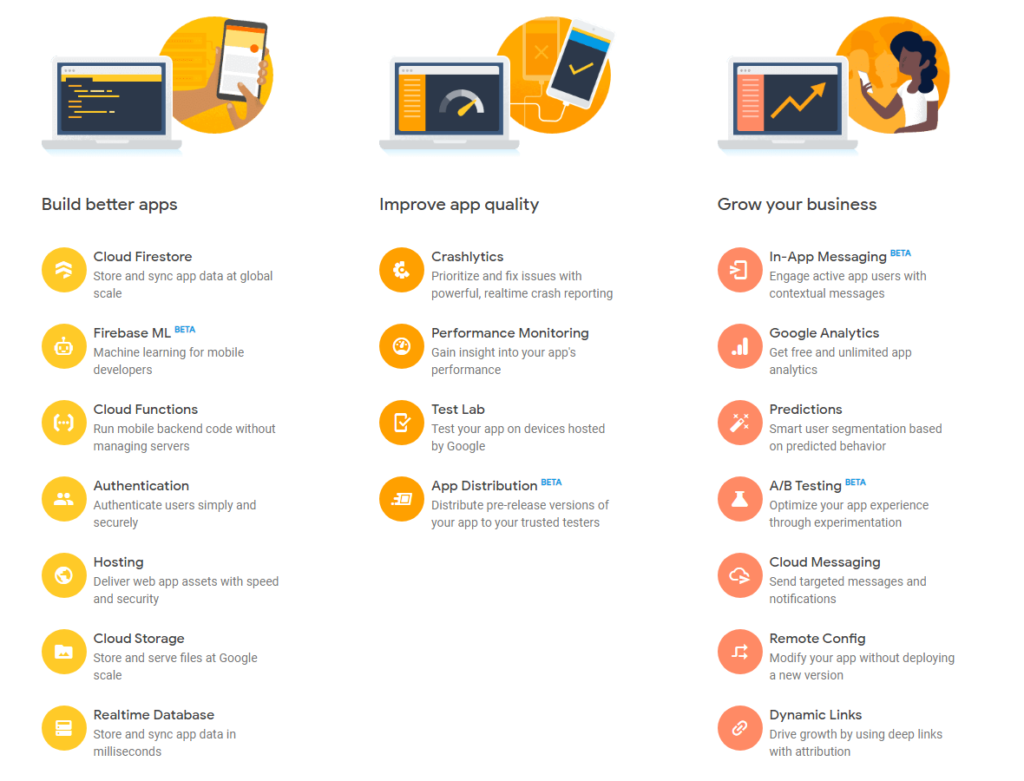
Pros and Cons of Firebase
Pros
- Authentication can be done by email and password, Facebook, etc
- Firebase provides real-time data
- The API is ready-made
- Security is built-in in nodes
- File backup is by Google Cloud
- Firebase file hosting is static
- Data is treated as streams
- Using Firebase, you can build a highly scalable application
- Don’t think about the infrastructure!
Cons
- Traditional relational data models do not apply to NoSQL
- Installation on-board is possible only for emulation on the local machine
- Firebase makes larger databases impossible to query
What is the alternative to Firebase?
Here is the clickable list of alternate databases to Firebase:
Comparison of Firebase with Other Platforms
AWS vs Firebase
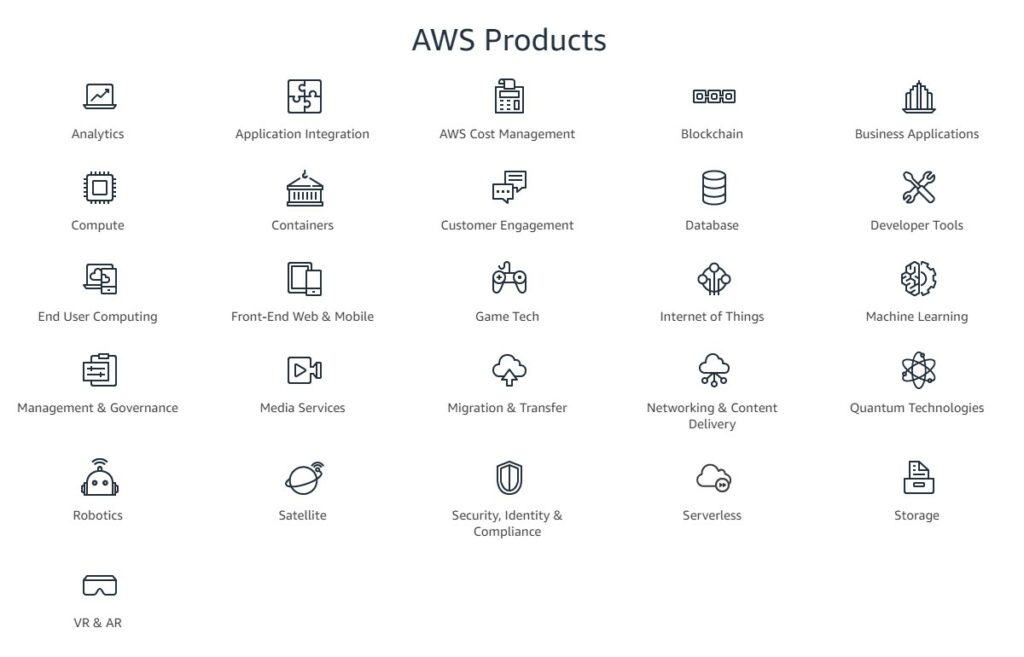
Firebase and AWS are server-less technologies. There is no need for server management. This technology limits the burden of management and service processing. Whether you are using Firebase or AWS, both will run your code when you trigger a request. This way, you can easily scale your application. Also, you only have to pay for its runtime.
| Differences between Firebase and AWS |
|
| Pros of AWS |
|
| Cons of AWS |
|
Heroku vs Firebase
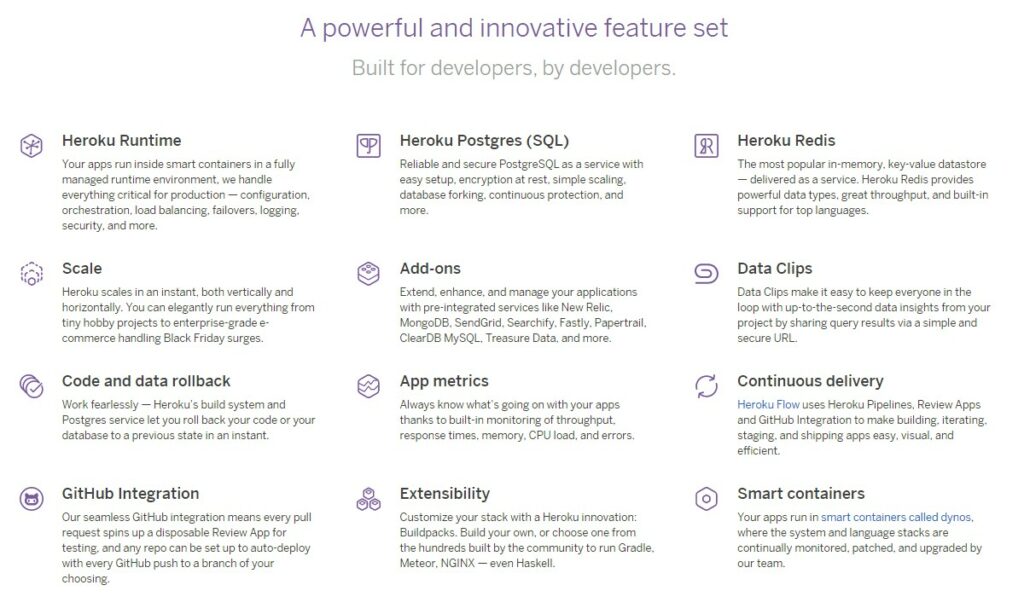
Firebase and Heroku service custom domains, backend processing, SSL, and many other great features improve application development. Firebase helps the developer to easily setup the backend. It works with highly flexible backend work. Heroku allows you to add different databases like MongoDB, and MySQL to your system.
| Differences between Firebase and Heroku |
|
| Pros of Heroku |
|
| Cons of Heroku |
|
Azure vs Firebase
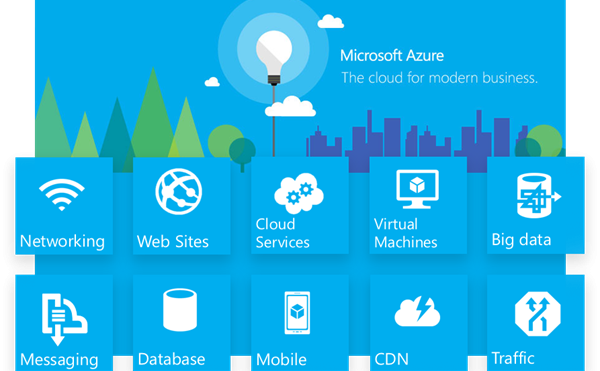
Azure and Firebase have no similar categories. Azure is categorized as Cloud Platform as a Service (PaaS), and uses relational DBMS compatible with SQL server. In comparison, Firebase is a Baas, supported by a data store.
| Differences between Firebase and Azure |
|
| Pros of Azure |
|
| Cons of Azure |
|
Parse vs Firebase
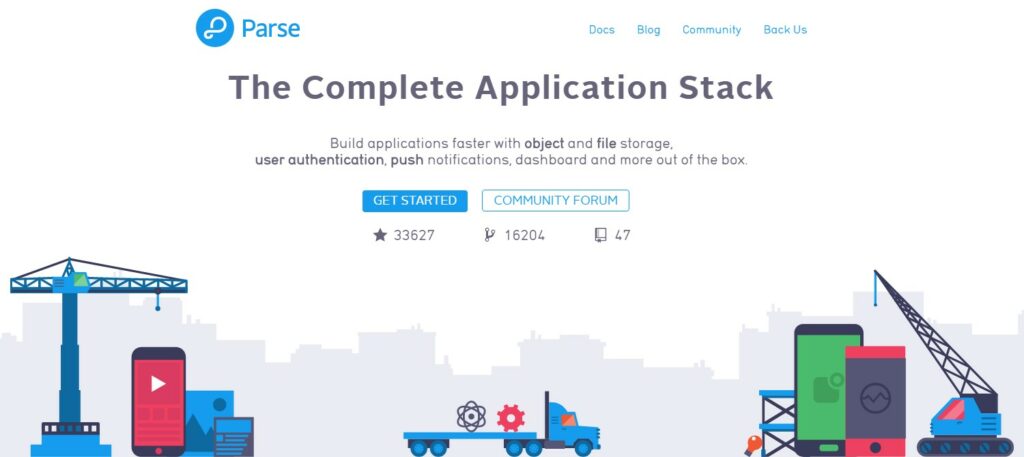
The Parse server allows its users to self-host. It is an open-source service supported by open-source developers. Firebase provides central data management, whereas the Parse server uses different databases to store different kinds of databases. For instance, MongoDB for data storage and Amazon s3 bucket for file storage.
| Differences between Firebase and Parse Server |
|
| Pros of Parse |
|
| Cons of Parse |
|
Hoodie vs Firebase
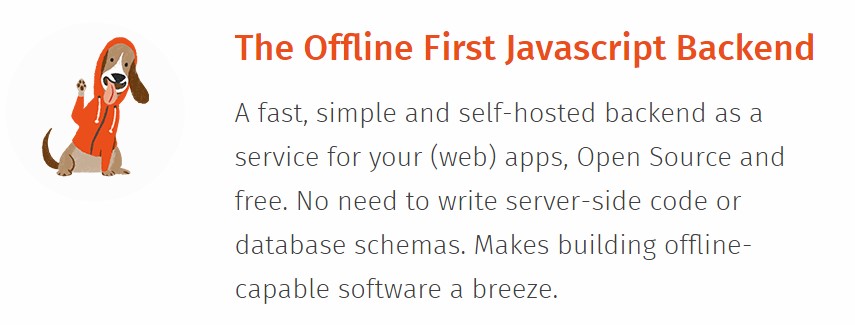
The Hoodie is an open-source service. It provides many other services except data storage like backend tasks. Firebase is not open source, and that is the main reason for its inflexible scaling.
| Differences between Firebase and Hoodie |
|
| Pros of Hoodie |
|
| Cons of Hoodie |
|
Back4app vs Firebase
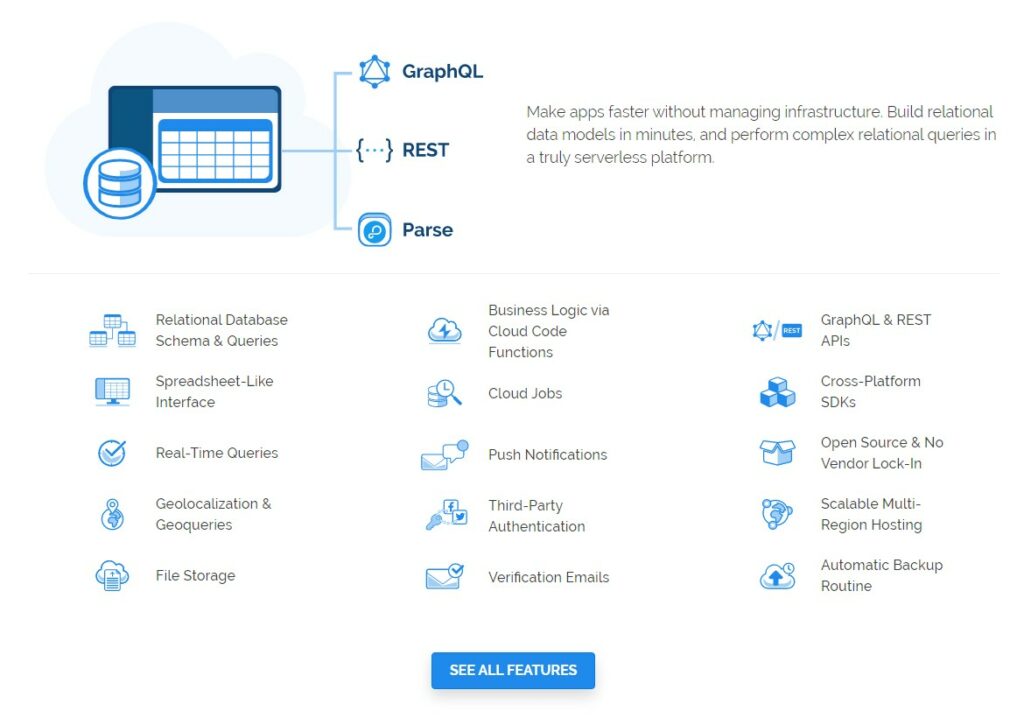
Back4app is a Software as a Service (SaaS) leading parse service. It has multiple features similar to parse servers like add-ons, performance monitoring and infrastructure.
| Differences between Firebase and Back4app |
|
| Pros of Back4app |
|
| Cons of Back4app |
|
CloudKit vs Firebase
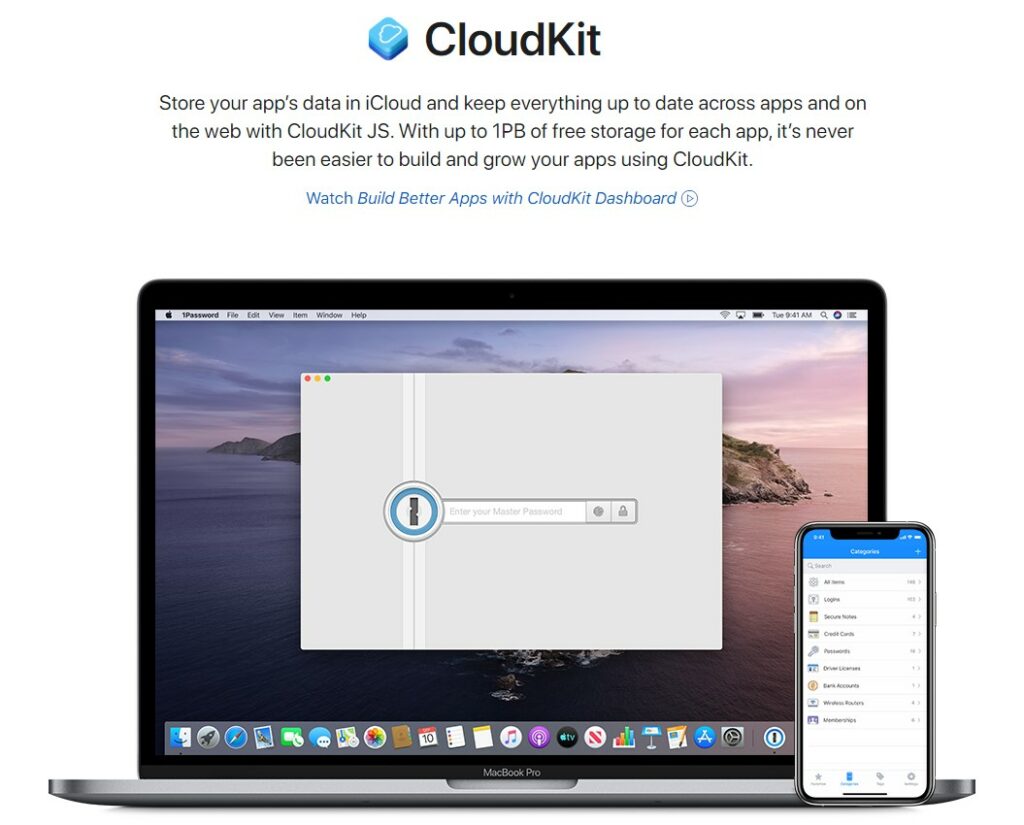
CloudKit is a framework that is used to exchange your data from your device to iCloud. It provides complete data sync. This means you can fetch this data from any connected device. An Apple account that you own is required to store your data. It is very easy to maintain your account.
| Differences between Firebase and CloudKit |
|
| Pros of CloudKit |
|
| Cons of CloudKit |
|
Conclusion
Google Firebase is an efficient backend platform. However, this isn’t the only choice in the world. In this article, we discussed seven alternatives to Google Firebase. All these platforms complement each other. All of them have amazing features and benefits. Yes, there are cons as well. We have discussed their comparison with Firebase. Now you have to choose the best option for you. It is recommended to go with a more cost-effective, scalable, and flexible one.
Subscribe to us










